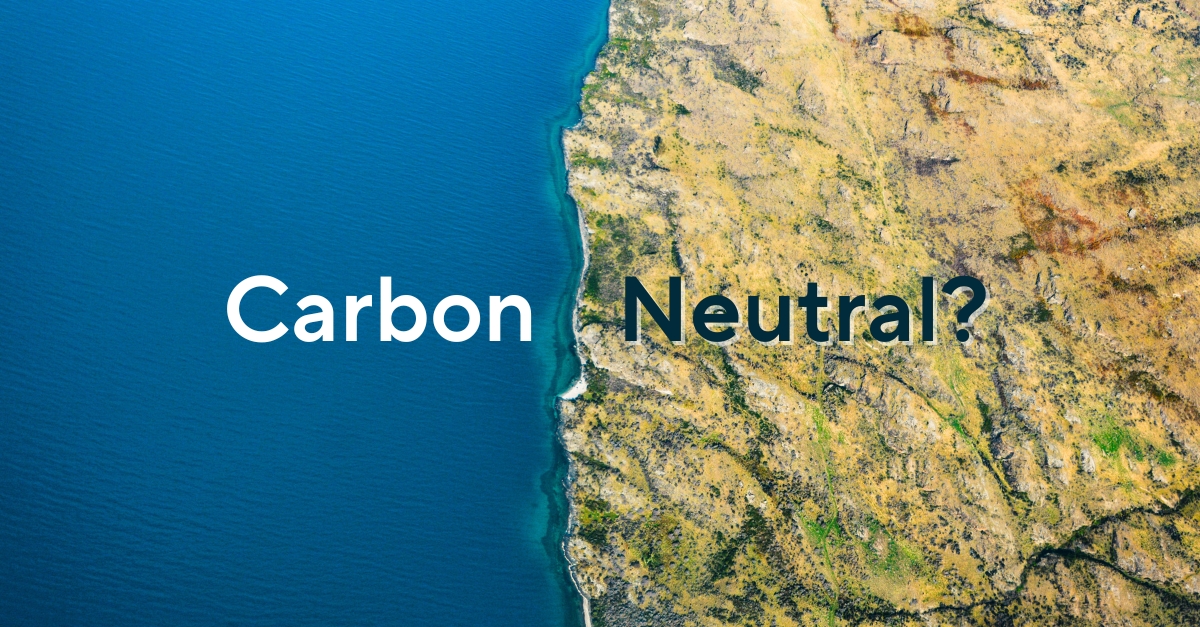Steering Clear
In recent years, the concept of Carbon Neutrality has faced substantial challenges, with growing scepticism, criticism, and even withdrawal from the term. It has almost become a taboo subject, one that companies want to steer clear of. Achieving Carbon Neutral was once an honourable milestone in a company’s decarbonisation journey, but now it is considered futile and inadequate by some. So why has such a respectable milestone fallen out of favour, and what does that mean for our decarbonisation goals moving forward?
Under Fire
The concept of Carbon Neutrality has received its fair share of criticism over the years. Carbon Neutrality claims have been criticised for being vague, potentially misleading, and susceptible to misuse. One of the primary concerns has been the potential for greenwashing, where organisations might claim Carbon Neutrality without making significant changes to their operations or truly reducing their emissions.
This criticism has reached the highest levels of governance, with the European Parliament and the European Commission expressing concerns over the authenticity of environmental claims. As a result, there has been a push for tighter regulations on terms like “Carbon Neutral” and “climate neutral,” with a possible ban on these terms without proper substantiation by 2026.
Net Zero Ideology
You could also argue that Net Zero has overshadowed Carbon Neutrality. Net Zero has become more widely accepted and better defined, while Carbon Neutrality is increasingly viewed as an inadequate measure of sustainability. Some activists and organisations have even advocated for retiring the term “Carbon Neutral” in favour of Net Zero, which has further diminished its use.
Reaching Net Zero is considered the gold standard and an admirable goal for any company. However, there is a common misconception that pursuing Net Zero must replace efforts to achieve Carbon Neutrality, rather than complement them. This is partly down to the undermining of carbon offsetting and the sense that Net Zero is the only way to protect yourself of criticism. In reality, Carbon Neutrality can be the initial target you maintain whilst on the long path to reaching Net Zero.
Justified Scepticism
The scepticism surrounding Carbon Neutrality is not entirely unfounded. Standards such as PAS 2060, which was introduced in 2010 to define Carbon Neutrality, were often flexible and lacked enforcement mechanisms. This allowed for widespread misuse and led to inconsistencies in how companies reported their carbon footprints. Over time this shattered Carbon Neutral’s credibility and sparked a descension of confidence that was hard to come back from.
One of the most significant criticisms of Carbon Neutrality has been the exclusion of certain emissions, particularly in Scope 3, which includes indirect emissions from a company’s supply chain and product lifecycle. Many organisations cherry-picked which emissions to include in their calculations, resulting in incomplete carbon footprints and undermining the credibility of their Carbon Neutrality claims. Moreover, the lack of third-party verification under previous standards meant that companies were often left to self-report their emissions reductions. This lack of oversight further fuelled concerns about greenwashing and made it difficult for stakeholders to trust Carbon Neutrality claims.
Carbon Neutral Renaissance
With all of the backlash and difficulties that Carbon Neutral has faced, you’d think it would be dead in the water by now. However, don’t write it off just yet. Thanks to the recent release of ISO 14068, Carbon Neutral is about to experience a renaissance. International working groups have come together to address the limitations of adopting Carbon Neutral, and with their updated methodology we are entering a new era of credibility and effectiveness in the launch of this new Carbon Neutral standard.
ISO 14068 brings international recognition and harmonisation to the concept of Carbon Neutrality. It not only addresses the shortcomings of its predecessors but also positions Carbon Neutrality as an interim activity on the journey to Net Zero. By requiring the same measurement boundary and a long-term Net Zero target, Carbon Neutrality becomes a logical and actionable first step in any comprehensive climate strategy. This new approach helps organisations set short-term targets that are ambitious yet achievable, providing a clear path for immediate climate action while working towards long-term goals.
Carbon Neutrality is far from dead. With the new ISO 14068 standard, it is being revitalised as a credible and impactful goal for both organisations and products. This marks the beginning of a Carbon Neutrality renaissance, where the term is no longer seen as a mere marketing tool but as a legitimate and essential step on the path to a sustainable, low-carbon future.
We will soon be releasing our next whitepaper, The Carbon Neutral Renaissance. It will cover all you need to know about Carbon Neutral including how best to achieve this milestone and maximise your decarbonisation impact. If you’d like to be one of the first to receive your copy, make sure you are subscribed to our insights to stay informed.
Chris Hocknell, Director
Chris brings over 17 years’ experience of supporting the built environment and corporate world with their sustainability goals. Specialising in sustainability strategy development, Chris works closely with clients to assess and understand their carbon and environmental footprint.






